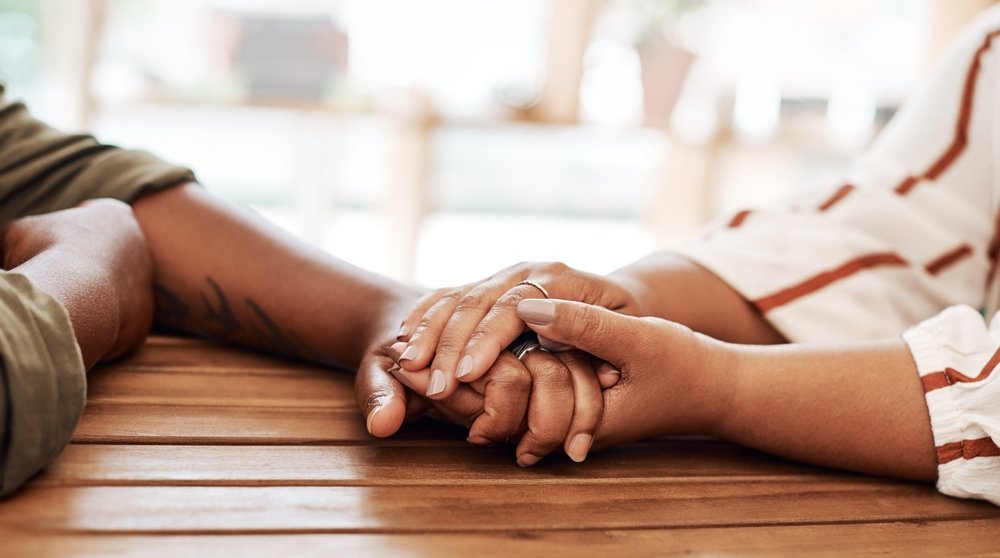Looking for the right anxiety therapist can feel overwhelming especially when you’re already dealing with worry, stress, or fear. You want someone who truly understands what you’re going through and has the experience to help. But not every therapist is the right fit, and some may even do more harm than good if you’re not careful.
Premarital Counselling Questions Can Save a Lifetime. Look for these red flags first so you don’t waste time, energy, or money. Knowing what to avoid can protect your progress and give you a better chance at real relief. Here’s what you need to watch for before saying yes.
Start with the Right Goal
Finding a therapist for anxiety isn’t just about location or convenience it’s about getting the right support. A good therapist helps you understand your anxiety, gives you tools to manage it, and supports you through progress. Before you book a session, be clear about what you need: someone who listens, explains, and works with anxiety specifically.

Don’t settle for the first name you find. Instead, take a little time to look for quality. This isn’t about just talking it’s about real help. When you start with the right goal, you avoid wasted time and set yourself up for real improvement.
- You’re not just looking for any therapist you need someone who truly understands anxiety.
- The right fit helps you feel safe, seen, and supported.
- Before booking that first session, know what warning signs to watch for.
Read: What Happens When Faith Meets Therapy: Inside Christian Marriage Counselling
They Say They Treat Everything
If a therapist says they handle everything from trauma to sleep issues to marriage counselling, they might not go deep on any one thing. Anxiety isn’t general. It requires specific tools like CBT (Cognitive Behavioural Therapy), exposure therapy, or mindfulness techniques backed by real training. Ask the therapist how they treat anxiety.
If they’re vague or give a one-size-fits-all answer, be cautious. You deserve someone who understands how anxiety works physically, mentally, and emotionally. A therapist who treats everything may not give you the focused help you need to get real results. Look for expertise, not just availability.
- If a therapist claims to specialise in everything, they likely specialise in nothing.
- Anxiety requires specific training and experience ask what methods they use (e.g., CBT, exposure therapy).
- Generalists might miss important details or give vague advice.
They Talk More Than They Listen
A good therapist listens more than they talk especially in the beginning. If your first session feels more like a lecture or a sales pitch, that’s a problem. You should feel heard, not rushed. Your concerns, experiences, and triggers need space. A therapist who talks over you or redirects the focus too often may not fully understand what you’re going through.
Therapy should be a safe space, not a performance. Notice how they respond when you speak. Are they curious? Do they ask thoughtful questions? Listening shows care and without that, real progress becomes harder. Respect your need to be heard.
- Your first session should feel like they’re trying to understand you, not impress you.
- If they interrupt often or dominate the conversation, that’s a bad sign.
- A good anxiety therapist listens closely and tailors the approach to your needs.
They Minimise Your Anxiety
Anxiety isn’t just stress. It can disrupt your sleep, affect your job, and make daily life harder than it should be. If a therapist brushes it off or says everyone feels that way, it’s a major red flag. Minimising your experience creates shame and makes you feel misunderstood.
A good therapist treats anxiety seriously and gives you real strategies not generic advice like try to relax. You need someone who respects your emotions, not someone who downplays them. Healing begins when your experience is taken seriously. Don’t ignore your gut if you feel dismissed or misunderstood in those early sessions.
- Avoid anyone who says things like everyone gets anxious or just relax more.
- Anxiety is real, and it deserves serious attention not casual dismissal.
- A qualified therapist validates your feelings and gives you real tools.
No Clear Treatment Plan
Therapy should be more than just weekly chats. If your therapist doesn’t outline a plan or explain how they’ll help you manage anxiety, it may not lead to real progress. You should know what approach they’re using, what goals you’ll work toward, and how long it might take to see change.

Without a clear path, it’s easy to feel stuck or unsure. A strong therapist checks in on your progress and adjusts the plan as needed. If weeks go by and you still don’t know what you’re working toward, it may be time to reconsider the fit.
- A good therapist doesn’t just “chat” they explain how they’ll help.
- Look for someone who offers a structured plan, sets goals, and tracks progress.
- If, after a few sessions, you still feel lost, that’s a red flag.
Read: What to Know Before Booking a Local Relationship Therapist 3 Might Surprise You
They Avoid Talking About Progress
You should be able to ask, How am I doing? and get a clear answer. If your therapist avoids this or gives vague responses, that’s a red flag. Therapy should help you track growth, reduce panic, improve sleep, and reduce anxious thoughts. While progress isn’t always fast, it should be discussed openly.
A good therapist checks in, sets goals, and celebrates small wins with you. Avoid anyone who keeps things unclear or avoids honest feedback. You deserve to feel like you’re moving forward, not stuck in place. Clear signs of progress show that the therapist knows what they’re doing and that it’s working.
- Progress matters. If the therapist avoids the topic, you may stay stuck.
- You should feel heard, supported, and slowly more equipped to manage anxiety.
- Ask how they measure success and how often they review your growth.
Promotes active, results-focused therapy.
Poor Communication or Late Replies
If your therapist is hard to reach, cancels often, or takes days to respond, it’s a red flag. You need someone reliable especially when dealing with anxiety. Missed calls, mixed-up schedules, or unclear messages can make things worse. Good communication builds trust. A responsible therapist respects your time and mental space.
They confirm appointments, respond within a reasonable time, and set clear expectations. Therapy works best when the relationship is steady and dependable. If their behaviour causes stress, confusion, or doubt, it may not be a healthy match. Consistency isn’t optional it’s part of what helps you feel safe.
- Delayed replies, last-minute cancellations, or vague scheduling are unprofessional.
- Therapy requires trust — if their behaviour feels unreliable, that trust breaks down.
- Clear, respectful communication matters from day one.
How to Find the Right One
Start by looking for licensed therapists who specialise in anxiety. Use trusted sites like Psychology Today, TherapyDen, or health insurance directories. Read reviews and check their listed specialities. Before committing, schedule a brief intro call and ask about their experience with anxiety. How do they treat it?

What methods do they use? How do they measure progress? You don’t need to settle for the first available person. Take your time and trust your comfort level. The right therapist will welcome your questions and explain their process clearly. A strong start leads to better trust and better results in the long run.
- Look for licensed therapists who specialise in anxiety.
- Read reviews, ask for recommendations, and trust your first impression.
- Sites like Psychology Today or therapy apps often filter by speciality and experience.
- Schedule a quick intro call before committing.
Read: 5 Questions Every Substance Abuse Counsellor Wishes People Would Ask
These signs often point to a poor fit. The right therapist will listen, provide structure, and help you move forward. Finding an Anxiety Therapist Locally? Being aware of what to avoid can save you time and help you get the real support you need.


